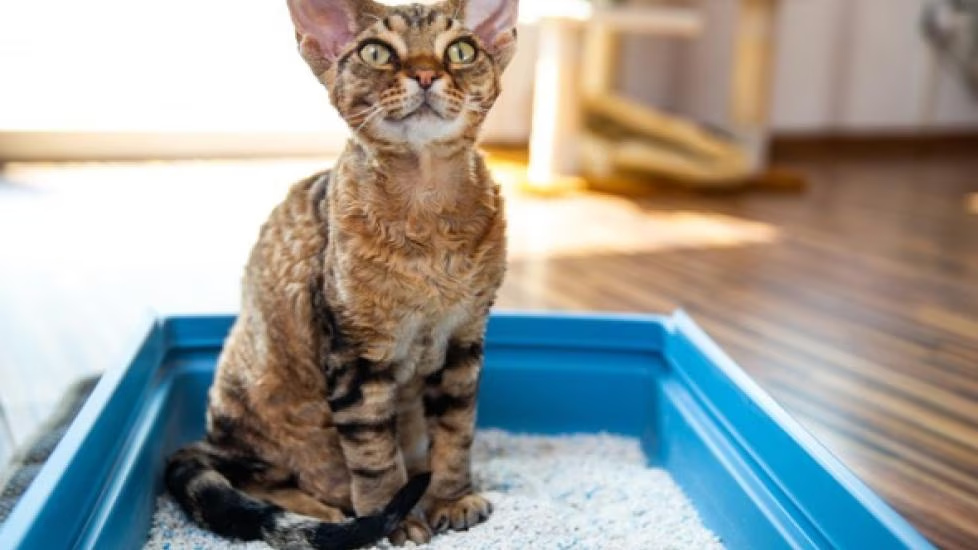Cat constipation is a common issue that many pet owners face at some point. It occurs when a cat has difficulty or infrequent bowel movements, leading to discomfort, bloating, and in some cases, more serious complications. Understanding the symptoms, causes, and available treatments can help you manage this condition and ensure your feline friend stays comfortable and healthy.
What Is Cat Constipation?
Constipation in cats happens when they are unable to pass stools or produce very hard, dry stools. This condition is not only uncomfortable but can lead to severe health complications if not addressed. Cats usually produce stool once or twice a day, and a delay or difficulty in this process can indicate constipation.
Symptoms of Cat Constipation
Recognizing the signs of constipation early can help you get your cat the treatment they need. Common symptoms of constipation in cats include:
1. Infrequent Bowel Movements
If your cat is not passing stools regularly or if there is a noticeable decrease in the frequency of bowel movements, it may indicate constipation. Healthy cats should pass stools once a day, but some variation is normal.
2. Straining or Painful Defecation
If your cat is straining or appears to be in pain while trying to defecate, it is a classic sign of constipation. You may notice your cat going into the litter box repeatedly but not producing any stool.
3. Hard, Dry Stools
When cats are constipated, their stools become hard and dry because the colon has absorbed too much water. If you observe dry, pebble-like stools or hard stools in the litter box, your cat could be suffering from constipation.
4. Vomiting or Lack of Appetite
In severe cases of constipation, your cat may feel nauseous, leading to vomiting. Constipated cats may also lose interest in food, which can result in weight loss and lethargy.
5. Lethargy or Discomfort
If your cat is lethargic, refuses to play, or exhibits discomfort when walking or moving, constipation could be the underlying cause. They may also show signs of abdominal discomfort, such as a bloated or painful stomach.
6. Excessive Grooming of the Rear
Some cats will excessively lick or groom their rear end if they are constipated, as they may be trying to relieve the discomfort or pain.
Causes of Cat Constipation
There are many reasons why a cat might become constipated. Some causes are temporary, while others may be chronic or related to other health conditions.
1. Dehydration
Dehydration is one of the most common causes of constipation in cats. If your cat isn’t drinking enough water, it can result in dry and hard stools, making them difficult to pass. Dehydration can be caused by factors like hot weather, illness, or not having access to fresh water.
2. Dietary Issues
A diet that is low in fiber can contribute to constipation. Cats who eat primarily dry food, which is low in moisture, are at a higher risk of developing constipation. Additionally, a sudden change in diet or food that is difficult to digest can also lead to digestive issues.
3. Lack of Exercise
Cats that do not get enough exercise may be more prone to constipation. Regular movement helps stimulate the digestive system, so sedentary cats may experience slower digestion and constipation.
4. Hairballs
Hairballs are a common problem for cats, especially those with long coats. When cats groom themselves, they ingest hair, which can accumulate in their digestive system. This hair can block the intestines or contribute to constipation.
5. Medical Conditions
Several medical conditions can contribute to constipation, including:
- Hypothyroidism: Low thyroid function can slow down the metabolism, leading to constipation.
- Spinal Issues or Pain: Cats with back problems or arthritis may find it difficult to position themselves properly to defecate, which can result in constipation.
- Megacolon: This is a more severe condition where the colon becomes abnormally dilated and unable to effectively move waste. It can lead to chronic constipation and is often more common in older cats.
- Colonic or Rectal Obstructions: Tumors, infections, or foreign objects in the intestines or rectum can block the passage of stools, leading to constipation.
- Neurological Disorders: Diseases that affect the nervous system, like diabetes, can also affect the ability to pass stool.
6. Medications
Certain medications, such as painkillers, antacids, or antihistamines, can slow down the digestive process and cause constipation. If your cat has recently been prescribed medication, this could be a contributing factor.
Treatment for Cat Constipation
If you notice the symptoms of constipation in your cat, it’s essential to take action to prevent the condition from worsening. In mild cases, you may be able to treat it at home, but more severe cases should always be evaluated by a veterinarian.
1. Increase Water Intake
One of the first steps in treating constipation is ensuring that your cat stays hydrated. Consider switching to a high-moisture diet, such as wet cat food, and ensure that fresh water is always available. You can also try a water fountain, as some cats prefer running water, which can encourage them to drink more.
2. Add Fiber to the Diet
Increasing fiber in your cat’s diet can help regulate bowel movements. You can add canned pumpkin, which is high in fiber, or special high-fiber cat food. Fiber helps absorb water and soften stools, making them easier to pass.
3. Laxatives or Stool Softeners
Your veterinarian may recommend a mild laxative or stool softener to help relieve constipation. These can be administered orally or added to your cat’s food to facilitate the passage of stools.
4. Probiotics
Probiotics can help improve your cat’s gut health and digestion. These beneficial bacteria can be added to their food and may help in cases of constipation related to digestive issues.
5. Exercise
Encourage your cat to stay active by providing toys and engaging in play sessions. Exercise helps stimulate the digestive system and promotes regular bowel movements.
6. Veterinary Intervention
In more severe cases of constipation, your veterinarian may need to provide treatments such as enemas or manual evacuation. For chronic constipation, further diagnostic tests may be needed to rule out underlying health problems like megacolon or tumors.
Preventing Constipation in Cats
Preventing constipation is often easier than treating it. Here are a few tips to help reduce the risk:
- Ensure hydration by providing plenty of fresh water and offering a wet food diet.
- Encourage exercise with play and active interaction.
- Add fiber to your cat’s diet, especially if they are prone to hairballs.
- Monitor for signs of constipation and seek prompt veterinary care if necessary.
Conclusion
Cat constipation can be uncomfortable for your furry friend, but it is often manageable with the right treatment and care. By recognizing the signs early and addressing the underlying causes, you can help your cat stay healthy and comfortable. If your cat’s constipation persists or worsens, consult your veterinarian for a proper diagnosis and treatment plan. With the right approach, your cat can recover quickly and avoid future constipation issues.

